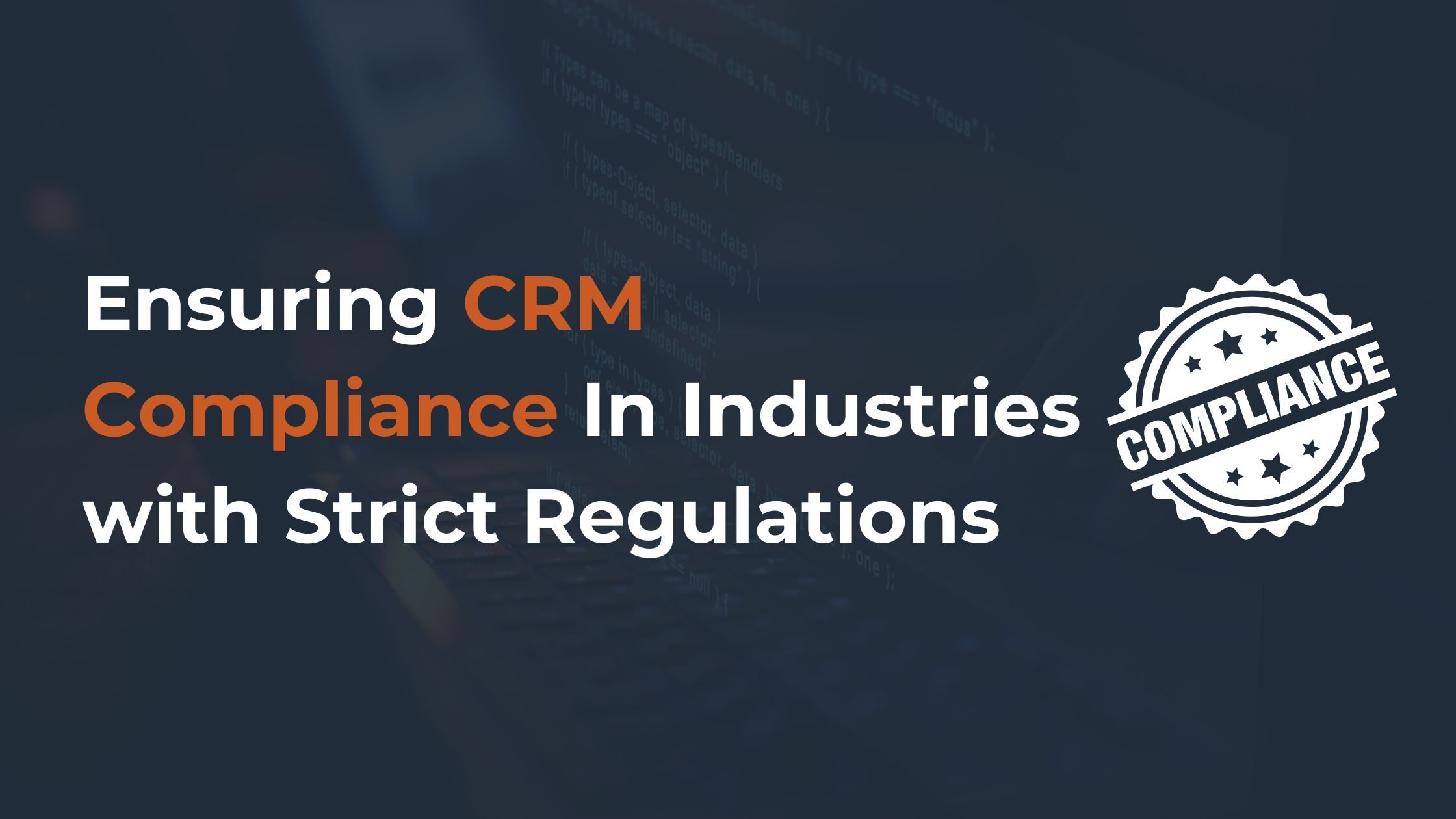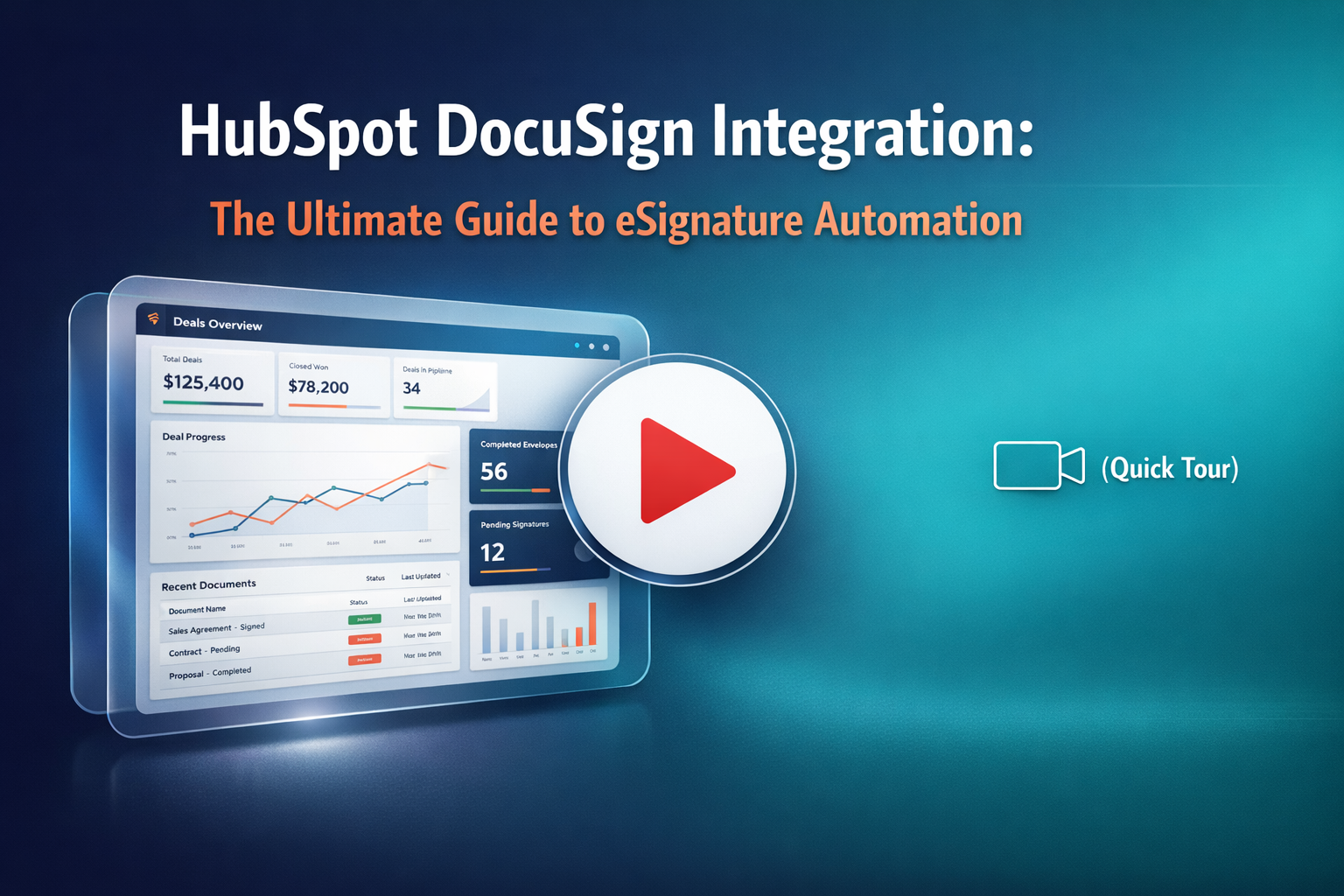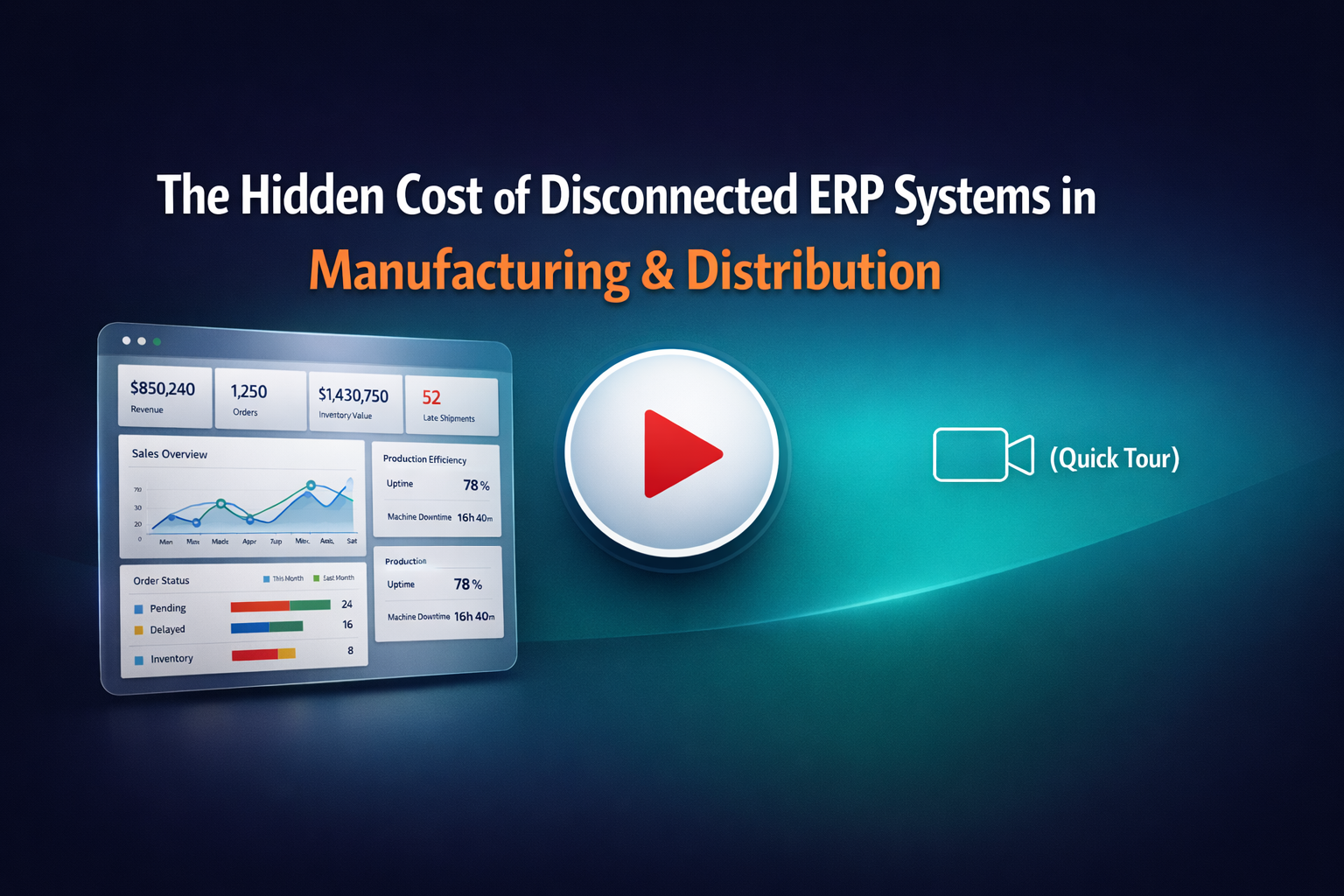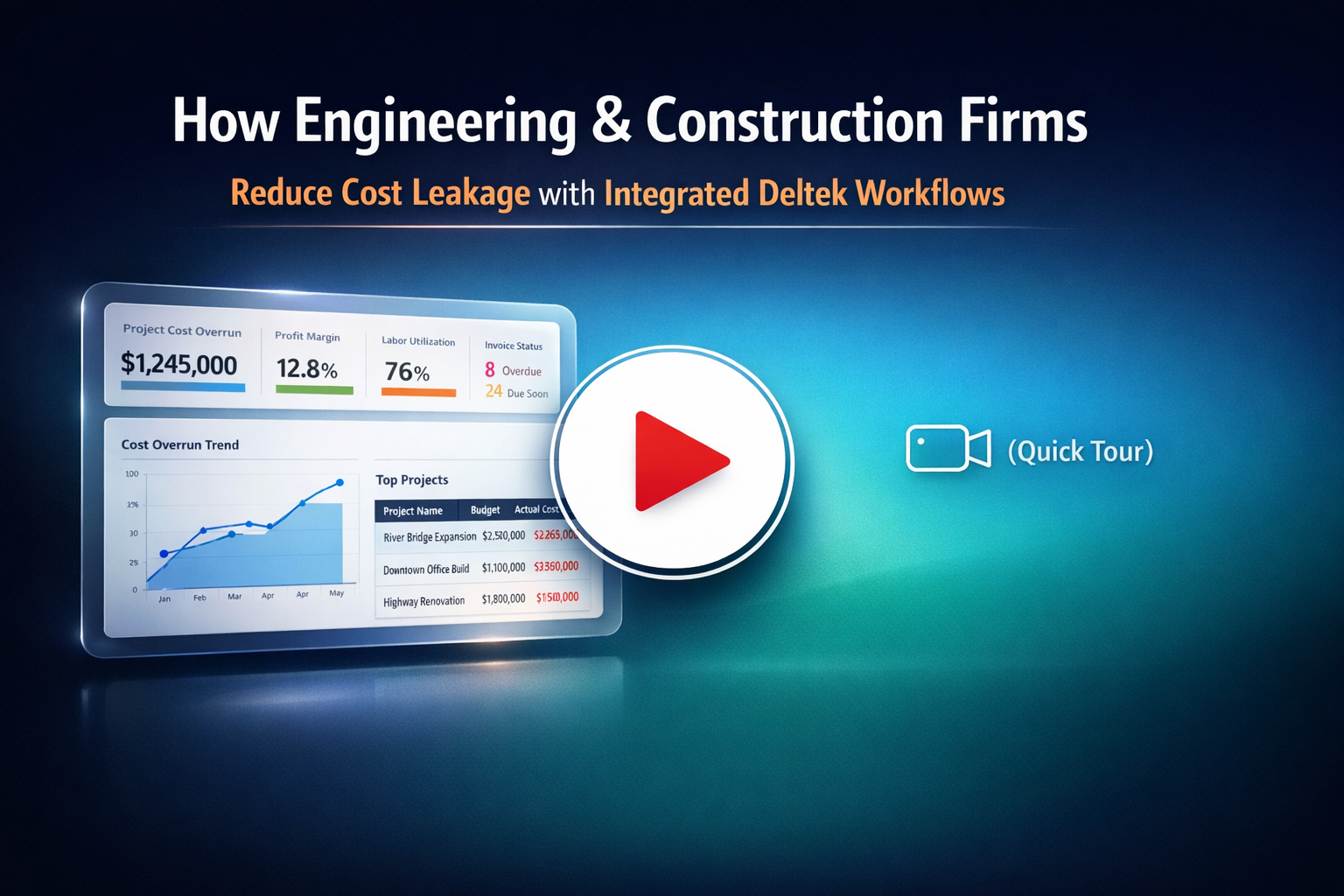It covers the risks of non-compliance, key requirements (data protection laws, security standards, audit trails), and how to build a compliance-first CRM through mapping regulations, encryption, role-based access, training, and real-time reporting. The post also stresses the value of system integrations, automation, and choosing CRMs with built-in compliance features.
Dig in to learn more!
Table of Content
- What CRM Compliance Means and Why It Matters in Regulated Industries
- Understanding CRM Compliance Requirements and Regulatory Standards
- Building a Compliance-First CRM Process from the Ground Up
- Managing CRM Compliance Risk and Ensuring Data Security
- Choosing the Right CRM with Built-In Compliance Tools
- Training Your Team and Maintaining Ongoing CRM Compliance
- FAQ
What CRM Compliance Means and Why It Matters in Regulated Industries

CRM compliance refers to the practice of ensuring that a company’s customer relationship management (CRM) system operates in line with all applicable regulations, standards, and contractual obligations. In highly regulated industries such as finance, healthcare, government, and retail/e-commerce, a CRM often becomes more than just a sales tool. It is a repository of sensitive customer data, financial records, protected health information, and audit-relevant evidence.
Compliance ensures that this data is collected, processed, stored, and shared responsibly. It protects both the business and its customers from risk while enabling organizations to demonstrate trustworthiness to regulators, partners, and end users.
Key reasons CRM compliance matters:
- Regulatory protection: Avoid fines, sanctions, and loss of licenses by staying aligned with laws like GDPR, HIPAA, PCI DSS, DORA, and others.
- Data security and privacy: Safeguard personal and sensitive data against unauthorized access, breaches, or misuse.
- Business continuity: Proper compliance frameworks reduce downtime, minimize disruption, and accelerate recovery in case of incidents.
- Reputation and trust: Being audit-ready and transparent builds credibility with customers and partners.
- Competitive edge: Companies that demonstrate strong compliance often win larger contracts and gain faster market entry.
How Non-Compliance Affects Business Operations
Failing to maintain CRM compliance doesn’t just attract legal consequences, but directly disrupts everyday business operations:
- Financial penalty: Regulators impose heavy fines that can cut into profits and strain budgets.
- Operational disruption: Remediation efforts often require system freezes, re-architecting integrations, or suspending certain workflows.
- Customer churn: Loss of trust can drive customers to competitors, especially in sectors like banking or healthcare, where security is very important.
- Contractual risks: Partners and vendors may terminate agreements if compliance is breached.
Understanding CRM Compliance Requirements and Regulatory Standards
CRM compliance is a framework that ensures your CRM aligns with the legal, security, and industry-specific standards governing the data you store and process. Different industries face different obligations, but all regulated organizations must be able to demonstrate that their CRM is secure, transparent, and auditable.
CRM compliance requirements generally fall into five categories:
- Data protection and privacy laws — governing how personal information is collected, stored, shared, and deleted.
- Sector-specific regulations — covering financial institutions, healthcare, or government data.
- Security standards — ensuring encryption, access controls, monitoring, and incident response.
- Third-party/vendor management — holding companies accountable for risks introduced by CRM providers and integrations.
- Audit and reporting obligations — providing proof of compliance on demand.
Key Regulations to Know: GDPR, HIPAA, and More
Businesses operating in regulated sectors must navigate a range of legal frameworks that directly impact how customer data is managed within their CRM systems. Some of the most important include:
- General Data Protection Regulation (GDPR): Originating in the European Union, GDPR sets strict rules on the collection, use, and processing of personal information belonging to EU residents. It is widely regarded as the most comprehensive global privacy law, applying not only to EU-based organizations but also to any company worldwide that serves EU individuals.
- California Consumer Privacy Act (CCPA): Enacted in California, this law grants residents greater control over their personal data. It covers categories such as online activity, geolocation details, health and financial records, and requires businesses to disclose how data is collected, shared, and sold.
- Health Insurance Portability and Accountability Act (HIPAA): A U.S. regulation designed to safeguard protected health information (PHI). Overseen by the Department of Health and Human Services, HIPAA applies to healthcare providers, insurers, and their business associates. Compliance is validated through periodic audits to ensure appropriate security and privacy measures are in place.
- Federal Trade Commission (FTC) Guidelines: These guidelines protect consumers from deceptive or misleading marketing practices. For example, influencers or partners must clearly disclose any financial or personal benefit they receive when endorsing a product or service.
While these are among the most influential regulations, organizations should also remain aware of other industry-specific and regional laws that may apply.
Building a Compliance-First CRM Process from the Ground Up

In regulated industries, compliance cannot be an afterthought added once a CRM is already in place; it must be designed into the system from the very beginning. A compliance-first approach ensures that every step of the CRM lifecycle, from data capture to reporting, is aligned with legal, security, and ethical obligations.
Compliance Mapping
Effective CRM compliance management starts with a clear picture of all the legal and regulatory obligations your business must follow. This begins by building a compliance map (a structured overview that documents every relevant requirement). One best practice is to use your CRM as a central hub, creating a dynamic regulatory repository that is regularly updated as laws evolve. Configuring the system to highlight critical deadlines, such as license renewals or mandatory submissions, ensures that important tasks are never overlooked. By integrating alerts or feeds from regulators directly into your CRM, organizations can anticipate changes early and adapt before they become risks.
Data Integrity and Security
Protecting the accuracy and safety of customer and operational data is at the core of any CRM compliance program. For industries that handle sensitive information, strong safeguards are essential. Establishing strict data management standards within the CRM helps maintain consistency and reliability. Security features like encryption, audit trails, and role-based access controls reduce the risk of unauthorized access. Regular security reviews and audits further strengthen defenses, ensuring vulnerabilities are identified and resolved before they create compliance issues.
Adaptation to Industry-Specific Requirements
Every sector faces unique compliance requirements, which is why customization plays such a key role in CRM compliance risk management. By tailoring CRM workflows to align with existing operational processes, businesses can make compliance tasks part of everyday routines rather than an added burden. Adding custom fields for industry-specific data, such as safety certifications, environmental reporting, or quality checks, ensures that important compliance details are captured. CRMs can also serve as a repository for training records, making it easier to prove employee readiness and certification during audits.
Adoption and Training for Users
Even the most advanced compliance-ready CRM will fail if users are not properly trained or invested in the system. Structured onboarding and role-specific training programs should not only explain how to use the CRM but also why it matters in the context of compliance. Continuous learning opportunities, such as refreshers on new features or regulatory updates, keep staff engaged and informed. To encourage adoption, organizations can implement incentive programs that reward employees who consistently follow best practices in compliance tracking.
Constant Tracking and Reporting
In regulated industries, the ability to track compliance in real time is a game-changer. By leveraging CRM dashboards, businesses gain instant visibility into compliance metrics, making it easier to spot issues before they escalate. Automated reporting tools streamline submissions to regulators, reducing errors and last-minute pressure. Routine compliance reviews, informed by CRM data, further ensure that organizations are not only meeting today’s standards but also preparing for future changes.
Integration with Systems
Compliance often requires input from multiple business units, which makes system integration vital. Connecting your CRM with ERP, HR, finance, or other core systems provides a unified compliance view. In more specialized sectors, custom APIs can extend CRM functionality, linking it with industry-specific tools for deeper oversight and reporting. This holistic integration eliminates silos and strengthens the CRM process to ensure compliance across the organization.
With solutions like SyncMatters, businesses can go beyond standard integrations. SyncMatters is a powerful iPaaS platform that connects over 55+ CRMs and enterprise systems, ensuring seamless data synchronization and compliance monitoring. We safeguard your data through ISO 27001 certification and full GDPR compliance, combined with strong encryption for information in transit and at rest. Role-based permissions let you control who has access, while integrations with third-party apps remain secure thanks to restricted authorization protocols. To further protect your operations, we provide proactive alerts for unusual activity or sync issues so risks are addressed quickly.
Using Technology to Promote Innovation in Compliance
Technology is reshaping the landscape of CRM regulatory compliance. By incorporating AI, IoT, or even blockchain into CRM workflows, businesses can enhance monitoring, automate repetitive checks, and maintain transparent records. Predictive models can flag potential risks before they become violations, while blockchain ensures the integrity of sensitive records. Staying informed about new compliance-focused technologies helps organizations remain proactive and competitive.
Managing CRM Compliance Risk and Ensuring Data Security
Managing CRM compliance risk requires a balance between regulatory obligations and the practical realities of handling customer data every day. By combining governance, advanced security measures, and proactive oversight, companies can minimize risks while maintaining seamless customer experiences.
Using Automation to Reduce Human Error
Human error is one of the biggest vulnerabilities in compliance management. A missed update, an incorrectly entered record, or a forgotten regulatory deadline can expose businesses to significant risks. This is where automation within CRM compliance management becomes essential. Automated workflows can handle routine yet critical tasks such as encrypting records, scheduling compliance audits, flagging incomplete customer data, or generating reports for regulators. Automated alerts and real-time monitoring help identify potential issues before they escalate, ensuring that compliance tasks aren’t overlooked. By reducing dependence on manual processes, organizations not only lower the likelihood of errors but also free their teams to focus on strategic initiatives, reinforcing both data security and regulatory confidence.
Choosing the Right CRM with Built-In Compliance Tools

A platform with built-in compliance tools helps reduce risk by embedding security and regulatory safeguards into everyday workflows. Features such as automated data encryption, customizable user permissions, audit trails, and consent management make it easier to align with frameworks like GDPR, CCPA, or HIPAA. The best CRMs also provide compliance dashboards and reporting functions, giving you visibility into how customer data is collected, stored, and shared. By choosing a solution that prioritizes compliance, you eliminate the need for patchwork add-ons and reduce the chance of gaps in protection. In short, the right CRM not only supports growth but also strengthens CRM compliance requirements from the ground up, ensuring customer trust and regulatory confidence.
When evaluating CRM platforms, look for features like:
- Data encryption at rest and in transit to safeguard sensitive information.
- Role-based access controls that ensure only authorized users can view or edit sensitive records.
- Audit trails and activity logs to track all changes and interactions with customer data.
- Consent and preference management tools to honor customer privacy choices and regulatory obligations.
- Automated compliance alerts and reporting to reduce manual oversight and human error.
Training Your Team and Maintaining Ongoing CRM Compliance
Technology alone can’t guarantee compliance, because your team plays a central role in safeguarding data and following proper processes. Even the most advanced CRM with built-in compliance tools requires employees who understand how to use it responsibly. Ongoing training ensures that staff not only know CRM compliance meaning but also apply best practices daily, from accurate data entry to respecting customer privacy preferences. Regular workshops, role-based training, and easy-to-follow compliance guidelines can make compliance part of everyday operations.
Keeping Up with Changing Regulations
Regulatory landscapes like GDPR, HIPAA, and CCPA are constantly evolving, and businesses must stay ahead to avoid penalties and risks. This requires a proactive approach — monitoring updates from regulatory bodies, updating CRM compliance management processes, and providing refresher training when rules change. Automated compliance alerts and reports within your CRM can help track these changes, but human awareness is equally vital. By combining up-to-date knowledge with the right technology, your team can adapt quickly, ensuring that your CRM remains aligned with both current and emerging compliance requirements.
FAQ
What industries require strict CRM compliance?
Industries like healthcare, finance, government, legal, and e-commerce need strict CRM compliance because they handle sensitive personal, financial, or protected data.
How does HIPAA compliance apply to CRM systems?
For healthcare organizations, HIPAA ensures that CRMs securely manage Protected Health Information (PHI). HIPAA compliance CRM includes implementing strong encryption, strict access controls, audit trails, and proper monitoring to prevent unauthorized access, while also allowing organizations to demonstrate compliance during audits or regulatory reviews.
Can CRM software automate compliance checks?
Yes. Modern CRMs can automate routine compliance tasks such as monitoring data access, encrypting sensitive information, tracking consent, and generating regulatory reports. Automation reduces the likelihood of human error and allows teams to focus on higher-level compliance and business strategy.
What’s the CRM process to ensure regulatory alignment?
Ensuring regulatory alignment involves a structured CRM process: mapping all applicable regulations, securing and monitoring data, training users, integrating automated compliance tools, and conducting regular audits. This proactive approach ensures that compliance is embedded into daily operations rather than being a reactive afterthought.
How do you know if your CRM is compliant with new laws?
To stay compliant with evolving regulations, regularly review your CRM vendor’s certifications (ISO, GDPR, HIPAA), examine compliance documentation, and verify that the system receives updates reflecting new legal requirements.




